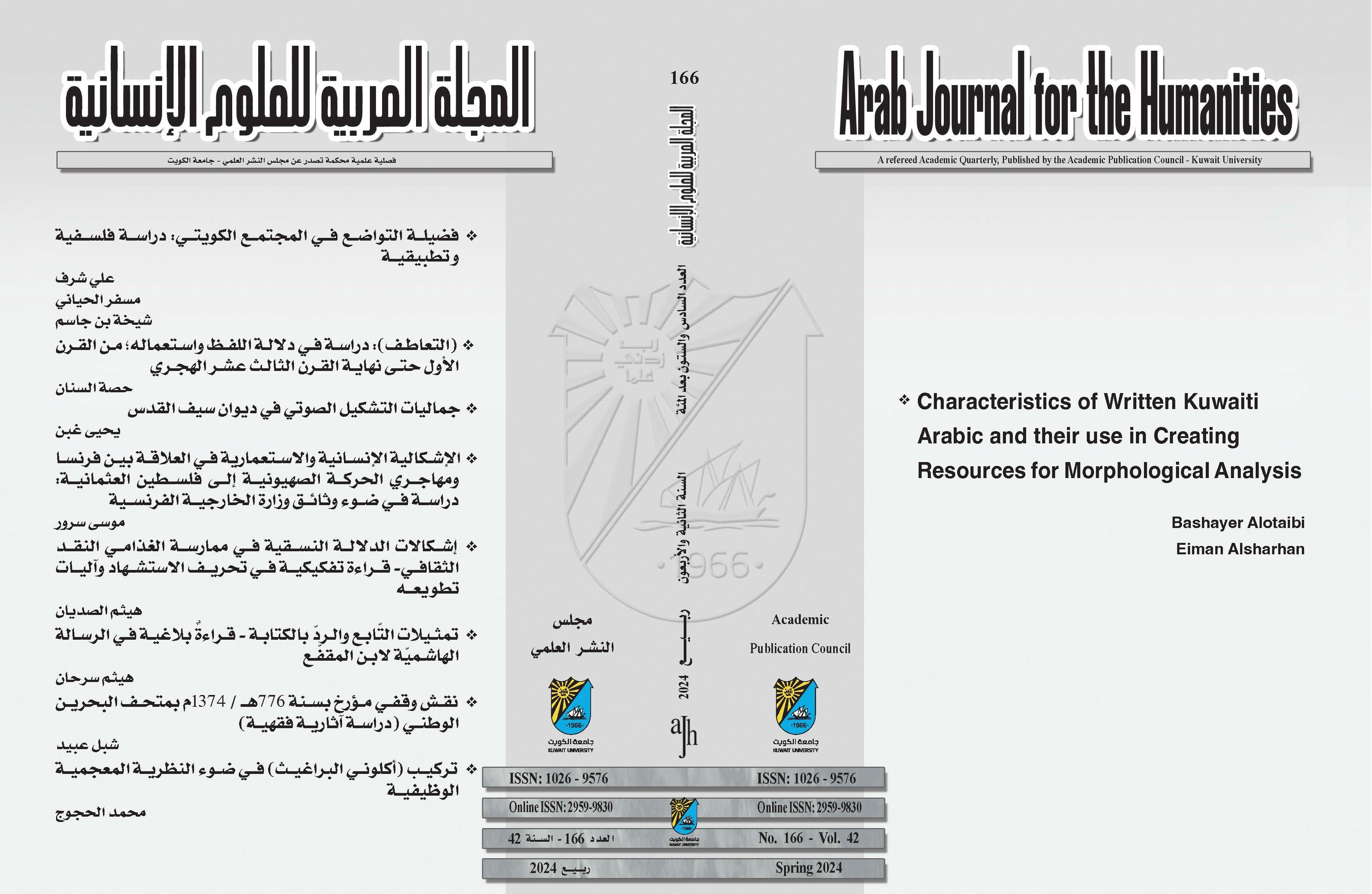Representations of the Subaltern and Writing Back: A Rhetorical Reading of Ibn al-Muqaffa’s Al-Risala al-Hashimiyya.
Keywords:
representations, subaltern, al-Risala al-Hashimiyya, writing back, critical discourse analysisAbstract
This study seeks to examine a rhetorical reading of Al-Risala al-Hashimiyya (The Hashemite Epistle) by Ibn al-Muqaffa’. It argues that the epistle can be seen as a reformist discourse whose explicit aim is to reform the caliphate system, but whose implicit message is to resist and undermine it. In this sense, the epistle is an equivocal discourse that alternates between conforming to authority, manipulating it, and at times overtly confronting it.
The voice of Ibn al-Muqaffa’, an embodiment of the subaltern, is vividly present in the text. It exemplifies the values, virtues, and ethos that seek to significantly influence the addressee through certain pronouncements and articulations, underscoring his location as a knowledgeable interlocutor.
Editing the manuscript, this study aims to explore the contexts that surrounded the writing of the epistle, including the location of the author, his relationship with the epistle and with the craft of writing, and his stance on the caliphate system and authority.
Drawing on Subaltern studies, this study is meant to trace three central perceptions and ethos in the epistle: (1) the ethos of the docile and eternal subaltern; (2) the ethos of the manipulative and subversive subaltern; and (3) the ethos of the revolutionary and confrontational subaltern.
The study concludes that Ibn al-Muqaffa’ has relied on various discursive strategies that aimed to unearth the violence that was inherent in the discourse of the Abbasid Caliphate system. In so doing, Ibn al-Muqaffa’ has exposed the foundations of this discourse and the tools through which the system managed to impose its hegemony and justify its acts. These acts, whose justification was based on the legitimacy of the caliphate and the infallibility of the Imam, resulted in various violations, such as corruption, spreading of fear and lies, accumulation of wealth, political suppression, and sowing discord among ethnic groups.
















